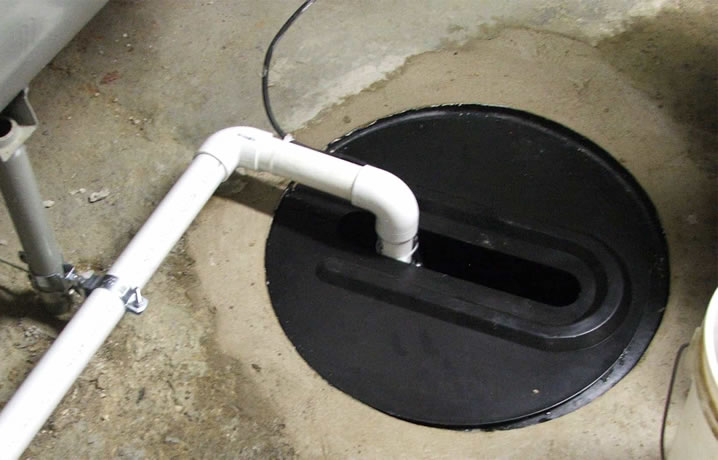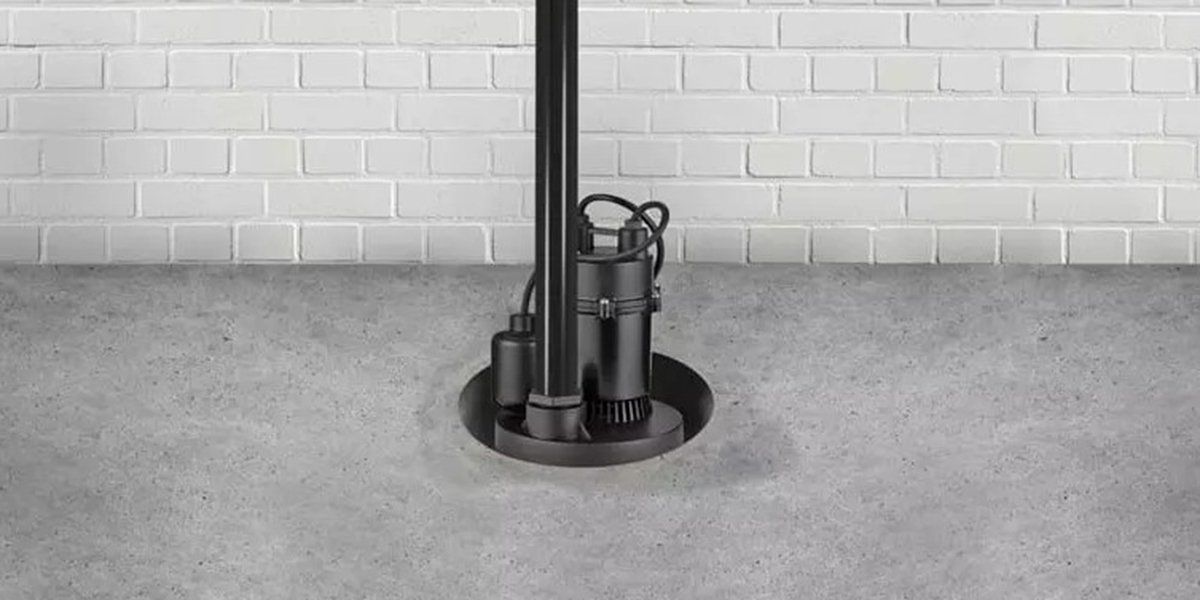Our Definitive Guide to Caring for a Sump Pump
Our Definitive Guide to Caring for a Sump Pump
Blog Article
We have stumbled upon the article involving How To Effectively Clean A Sump Pump directly below on the web and accepted it made sense to discuss it with you in this article.

Sump pumps are vital elements in lots of homes, specifically in locations prone to flooding or too much dampness. They assist protect against water damages by successfully eliminating excess water from cellars or crawl spaces. Nevertheless, like any other home appliance, sump pumps call for normal maintenance to ensure they work successfully when required one of the most. Cleaning your sump pump is a crucial part of its maintenance, and recognizing just how to do it appropriately can save you from expensive repair work and prospective calamities.
Intro
Keeping a tidy sump pump is essential for its proper functioning and long life. Overlooking this crucial job can result in blockages, malfunctions, and eventually, water damages to your residential or commercial property. Therefore, learning exactly how to cleanse a sump pump is crucial for home owners who depend on these gadgets to maintain their basements completely dry and secured.
Recognizing the Sump Pump
Before diving right into the cleaning process, it's necessary to have a fundamental understanding of just how a sump pump works. Generally mounted in a pit or basin listed below the basement flooring, a sump pump consists of several essential components, consisting of a pump, a float button, and a discharge pipeline. When water collects in the pit, the float switch triggers the pump, which then pumps the water out through the discharge pipeline, far from the structure's structure.
Signs of a Dirty Sump Pump
Understanding when your sump pump requires cleansing is critical for preventing prospective breakdowns. Some common indicators that indicate a dirty sump pump include weird noises during procedure, decreased water circulation, and visible particles in the pit. If you observe any one of these symptoms, it's important to cleanse your sump pump quickly to stay clear of any additional issues.
Planning for Cleaning
Before you start cleansing your sump pump, it's vital to take some safety preventative measures. Beginning by shutting off the power to the pump to stay clear of any type of electric mishaps. Additionally, put on appropriate protective gear, such as handwear covers and goggles, to safeguard yourself from dirt, particles, and prospective virus.
Detailed Guide to Cleansing a Sump Pump
Shutting Off the Power
Begin by disconnecting the power supply to the sump pump to stop any type of mishaps while cleansing.
Getting Rid Of Debris and Dirt
Make use of a container or an inside story to remove any type of noticeable particles, dust, or sediment from the sump pit. Dispose of the particles properly to prevent it from clogging the pump or the discharge pipe.
Cleaning up the Pump and Drift Switch Over
As soon as the pit is free from particles, carefully eliminate the pump from the pit. Inspect the pump and the float button for any type of indicators of damages or wear. Use a soft brush or cloth to cleanse the surfaces and eliminate any collected crud.
Flushing the System
After cleansing the pump and float switch, flush the sump pit with clean water to eliminate any staying dust or debris. This will help make certain that the pump operates smoothly and effectively.
Looking For Correct Functioning
Before reinstalling the pump, carry out a fast examination to make certain that the float switch triggers the pump appropriately. Pour some water into the sump pit and observe the pump's procedure. If whatever is functioning correctly, you can reconstruct the pump and reconnect the power supply.
Upkeep Tips to Keep Your Sump Pump Clean
Along with regular cleaning, there are several upkeep pointers you can follow to keep your sump pump in ideal condition:
Verdict
Cleaning your sump pump is an essential facet of its upkeep and ensures that it operates efficiently when you need it one of the most. By complying with the actions detailed in this guide and including routine upkeep into your regimen, you can prolong the life expectancy of your sump pump and safeguard your home from water damages.
6 STEPS ON HOW TO CLEAN A SUMP PUMP PROPERLY
UNDERSTANDING SUMP PUMPS
Your sump pump plays a crucial role in protecting your home by managing and removing excess water. It primarily functions as a “shield”, guarding your basement against the damaging effects of water accumulation. The pump is housed in a sump pit in the lowest part of your basement, and its job is to pump out any water that collects there.
During heavy rainfalls or when snow melts rapidly, water can infiltrate your basement, posing potential risks like flooding, structural damage, and harmful mold growth. Here, the sump pump springs into action, pumping out the intruding water and directing it away from your home.
SAFETY FIRST
Before cleaning, remember to prioritize safety. Disconnect the sump pump from the power source to prevent any accidental electric shocks. Also, wear sturdy gloves to protect your hands from any sharp or dirty components within the pump.
REMOVE THE SUMP PUMP
After ensuring your safety, the next step is to remove the sump pump from its pit. Doing this might require careful maneuvering as you don’t want to damage any pump components. Once removed, clean the sump pit to remove any accumulated debris or sludge.
INSPECT THE PUMP
Inspect the pump for any visible signs of wear or damage. Check the power cord, float switch, and impeller housing. If any components look worn out or damaged, consider replacing them to ensure optimal performance.
CLEAN THE PUMP
Thoroughly clean the pump with warm, soapy water. Make sure to rid it of any dirt, gravel, or other debris that might impede its performance. You can use a toothbrush to clean the small, hard-to-reach parts of the pump.
REINSTALL THE SUMP PUMP
Reinstall the pump into the sump pit Make sure it’s positioned correctly to remove the water effectively Once it’s back in place, reconnect it to the power source TEST THE PUMP
Finally, pour some water into the pit to ensure the pump works correctly. It should start automatically and begin pumping out the water; if it doesn’t, check the power source and the positioning of the pump.
Remember, while cleaning your sump pump is an essential part of home maintenance, hiring a professional plumber for a thorough inspection and cleaning at least once a year is also important. This will ensure that your pump is in optimal condition, ready to protect your home from potential water damage.
BEST PRACTICES FOR CLEANING SUMP PUMP DISCHARGE PIPES
Regular Inspection: Regularly inspect your discharge pipes, especially during heavy rainfall or snowmelt periods. Look for any signs of blockage or damage. Early detection of problems can prevent serious issues down the line. Periodic Cleaning: Over time, sediment and debris can accumulate in the discharge pipes, impeding the flow of water. Regular cleaning helps keep the pipes clear and functioning efficiently. You can use a high-pressure water jet to effectively clean the pipes. Insulation During Winter: In colder climates, discharge pipes can freeze, blocking the outflow of water. Protect your discharge pipes from freezing temperatures by insulating them with foam pipe insulation. This will ensure the sump pump can continue to discharge water even in freezing conditions. Proper Positioning: The discharge pipe should be positioned to direct water away from your home’s foundation. Improper positioning can lead to water seeping back into the basement. Ensure the pipe is long enough and angled correctly. Installation of a Check Valve: A check valve prevents water from flowing back into your sump pit after the pump has pushed it out. Installing a check valve helps maintain the efficiency of your sump pump and reduces the risk of flooding. Minimize Pipe Turns: Every curve or turn in the discharge pipe can decrease the efficiency of water flow. By minimizing turns and bends in your discharge pipe, you can increase the efficiency of your sump pump. https://www.fullspeedplumbing.com/how-to-clean-a-sump-pump-properly9999/

As a fervent reader on How to Care for Your Sump Pump, I was thinking sharing that portion was worthwhile. Sharing is nice. Helping others is fun. I thank you for your readership.
Click Here Report this page